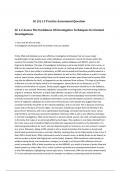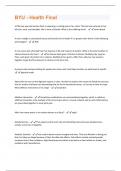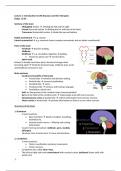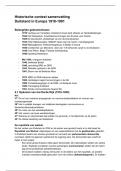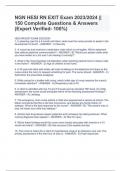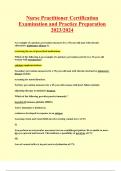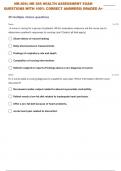Exam (elaborations)
AC 1.2 Assess The Usefulness Of Investigative Techniques In Criminal Investigations.
- Module
- Institution
These answers are what I used for my final unit 3 internal assessment, I only took in these documents and I was awarded 100/100 on this exam. These answers are based upon information from the WJEC Criminology textbook and feedback from my teachers. These documents contain ALL information required t...
[Show more]
